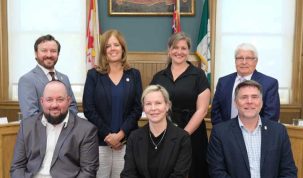By Cecilia Nasmith/Today’s Northumberland
Among the items currently in Ontario Solicitor General Sylvia Jones’s in-box is a proposal from Northumberland County for amalgamating Police Service Boards in the five townships that hold Ontario Provincial Police contracts.
Under this plan, these townships (Hamilton, Alnwick-Haldimand, Cramahe, Brighton and Trent Hills) would be able to dissolve their individual Police Service Boards in favour of a single amalgamated body with 10 members – one from each of these municipalities, two community members, two provincially appointed members and a First Nation representative.
Cobourg and Port Hope have their own municipal forces, though Port Hope’s rural ward holds an OPP contract. But because the municipality is only partially policed by the OPP, Brighton Mayor Brian Ostrander explained in a recent interview, it falls under a different section of governance for Police Service Boards.
It’s an idea that has been in the works for some time, Ostrander said.
“The former provincial government had wanted to look to create efficiencies in governance for police servicing. The original concept was to switch over to a detachment-related board, similar to the way it is today.
“Most of us who are paying for a police contract said, ‘this means there’s a good chance one or two or three of us may be without representation on this Police Service Board,’” he recalled.
There was pushback from the ministry, a provincial election – things came up, Ostrander said. Then, at the last in-person ROMA conference in 2019, the five affected mayors met with the Solicitor General with their concerns.
“We simply said, ‘All we are asking for is representation. We get that you need to have efficiency in government and efficiency in how police services work, but when we are paying a contract – and in Brighton’s case, it’s just over $2-million – there needs to be representation from the municipal level at that board.’”
From there, they were invited to formulate and submit a proposal, which has been done.
As for when approval might be expected, Ostrander said, “these things always work at the speed of government. It could be quickly as to their getting this done, or it could be hurry-up-and-wait.
“I would not anticipate a change in how we run things until next year some time.”























